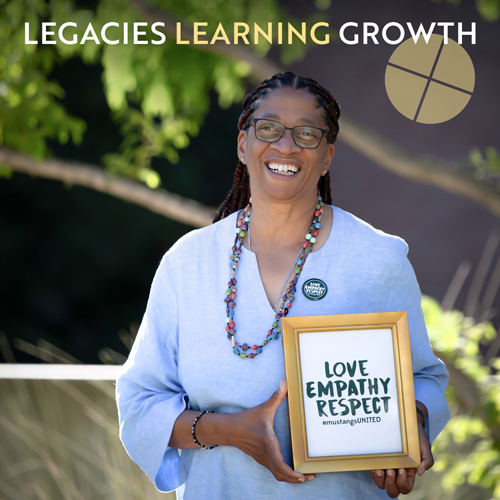Biology Students Do Hands-On Genetic Research
Laura Kraemer mixes a solution in the genetics lab.
Biology Professor Sandi Clement is a huge fan of messenger RNA (mRNA), which means the students in her lab Learn by Doing hands-on genetics research that might contribute to future treatments of autoimmune disorders.
Though DNA gets a lot of publicity, it's actually mRNA that tells each cell in the body what to do — whether to make a skin cell or a liver cell, for example, or when to produce antibodies, and, importantly, when to stop. Unfortunately, sometimes an mRNA's on/off switch gets broken, so cells never get the message to stop reproducing or fighting an infection. This leads to cancer and to autoimmune disorders such as rheumatoid arthritis and Crohn's disease.
Not much is known about how exactly the off signal gets blocked, so Clement and her students are trying to find out. The research group has isolated the moment when the on/off switch gets flipped. Now they're working to identify the protein responsible.
To solve the puzzle, the students clone genes, create mutations, and compare mutated and non-mutated cells — the same techniques used in real-world genetics laboratories.
"A lot of folks cautioned me that these techniques would be too difficult for undergraduate students, but they have risen to the challenge," Clement said.
Beyond gaining advanced lab skills, the students are involved in the true work of science — designing the experiments and problem-solving. "In any type of research, there will be roadblocks. An important skill students learn is to work through frustrations together to improve the process," Clement said.
Laura Kraemer has been working in Clement's lab for two years and received an $8,000 CSUPERB Presidents' Commission Scholars award to fund her work in summer 2013. "Real-world research has forced me to think differently and approach problems in new and creative ways," Kraemer said. "I have learned from my own mistakes how to think critically, problem solve, and investigate new ideas."
Kraemer has been working independently studying two mutant versions of a protein involved in switching the mRNA on and off. "My research work truly became a Learn by Doing experience when I started working with very little supervision," Kraemer said. "Having the opportunity to research something that no one else has tried has taught me to trust my intuition and judgment as a scientist."





